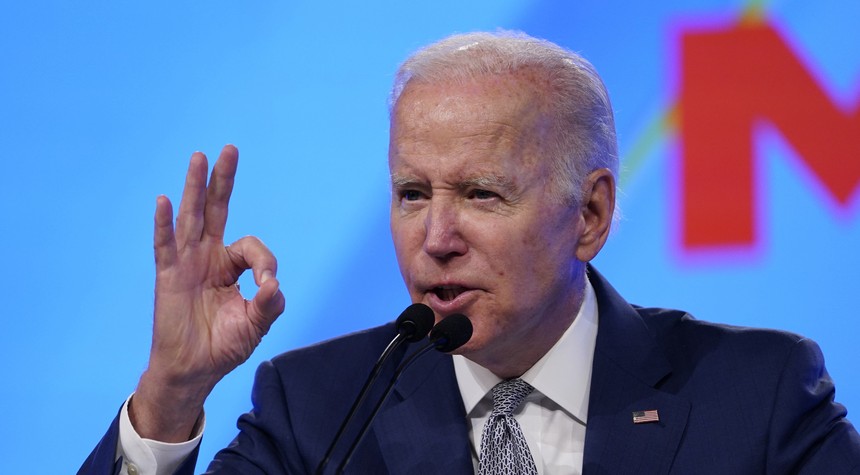(The opinions expressed in guest op-eds are those of the writer and do not necessarily represent the views of RedState.com.)
In recent days, the Biden administration has desperately tried to reassure Americans that the U.S. economy is in great shape, and any fears of a recession are unwarranted. At the same time, the administration has gone to great lengths to redefine what constitutes a recession, leading many to believe that the administration is simply trying to play word games instead of addressing the fact that the U.S. economy is very likely on the brink of a recession.
For starters, since 1974, it has been well recognized that the common definition of a recession is two consecutive quarters of negative GDP growth.
In the first quarter of 2022, U.S. GDP declined by 1.6 percent. According to many estimates, it seems highly likely that the second quarter GDP will also register in the red, meaning that according to the classic definition, the U.S. economy is probably on the brink of a recession.
According to several polls, the vast majority of Americans already believe the U.S. economy has entered into a recession. For instance, per a recent Investor’s Business Daily (IBD) survey, “A clear majority of Americans — 58% — think the U.S. economy is in a recession, up from 53% a month ago and 48% in May.”
So, what is leading such a large percentage of Americans to believe the recession has already arrived?
As the IBD poll shows, the number one reason Americans fear a recession is either imminent or already underway is because inflation is taking a big bite out of their meagre wage gains. This explains why the “near-term outlook for personal finances just hit a record low for the survey back to February 2001.”
What’s more, most Americans do not see inflation improving anytime soon. “The IBD/TIPP Poll finds that just 19% of adults say their wages have kept pace with inflation, while 54% say they haven’t kept pace. Meanwhile, 91% of Americans are concerned about the path of inflation over the next 12 months.”
Aside from worsening inflation, the American people are also concerned about a labor market that seems totally out of whack. Yes, the unemployment rate is low at 3.6 percent. But, the labor participation rate sits at 62.2 percent and has been dropping in recent months. For comparison, the labor participation rate stood at 63.4 percent before the pandemic and over 67 percent in late 2001.
Jobless claims are also on the rise, even though the U.S. economy maintains more than 11.3 million open jobs. In other words, far too many Americans remain out of work, for whatever reason, which is likely a factor in declining GDP and recessionary reservations.
While the White House constantly touts how strong the labor market is, the American people seemingly see things differently. Per the IDP poll, “41% of households have at least one member who is out of work and looking for employment, down 1 point from June. Now 36% are concerned about job loss in the household, up 6 points on the month. Factoring in the overlap, the share of job-sensitive households is currently 53%.”
On top of all of this, the stock market has taken huge hits over the past few months, fueling fears that the U.S. economy is not on strong footing. Just this week, Walmart issued its latest earnings report, which was less-than-stellar and fed recession fears.
Nevertheless, we will find out very soon if the U.S. economy is indeed in a recession, as most Americans believe it to be. Regardless of what happens, you can bet that the White House will be in all-out spin mode over the next several days.

